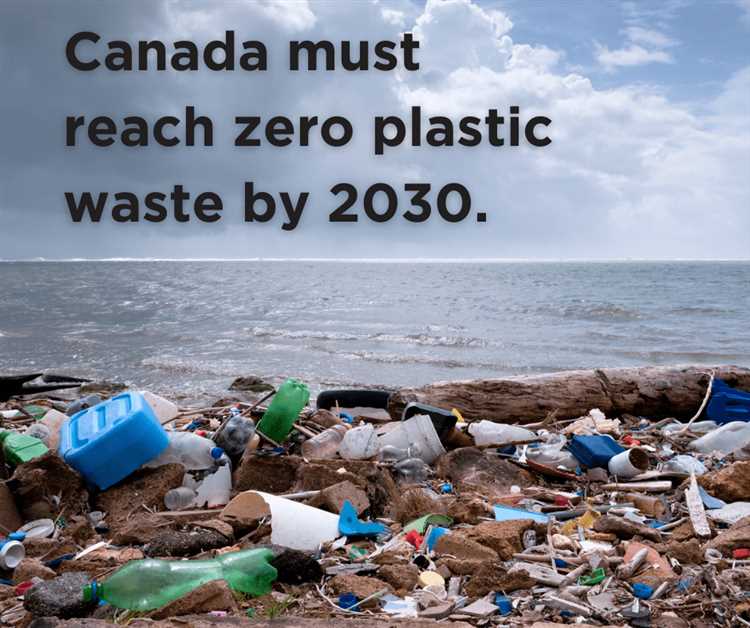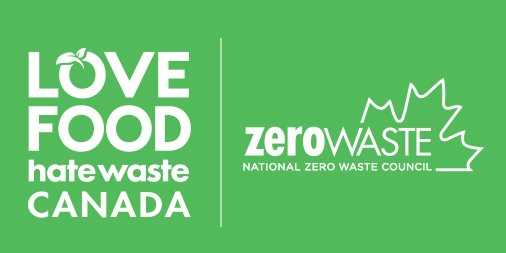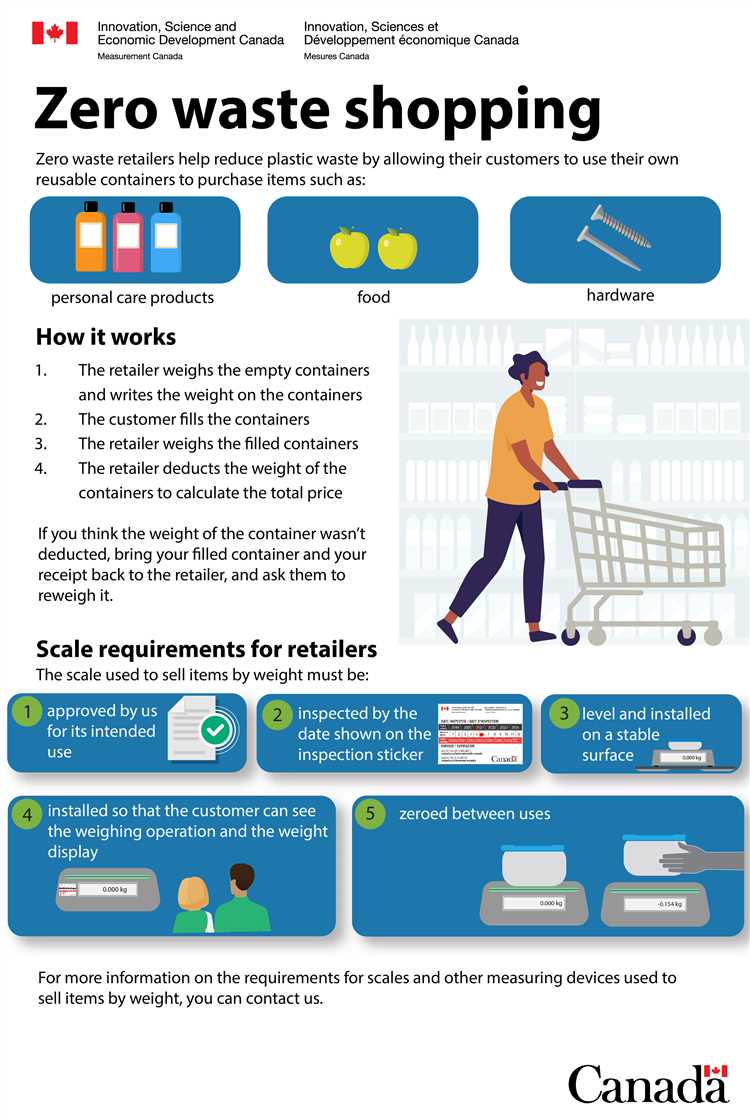
Zero waste has become a buzzword in recent years, as communities and countries around the world strive to reduce their environmental impact and find sustainable solutions to waste management. One country that has been leading the way in this movement is Canada.
With its vast wilderness and commitment to environmental conservation, Canada has made significant strides towards achieving zero waste goals. The country has implemented a number of innovative initiatives, including comprehensive recycling programs, landfill bans, and the promotion of circular economy practices.
One of the key drivers of Canada’s success in waste reduction is its focus on education and awareness. From schools to community centers, Canadians are being taught about the importance of reducing, reusing, and recycling. This knowledge is then being applied in households and businesses across the country, resulting in a significant decrease in waste generation.
Additionally, Canada has been actively encouraging the adoption of sustainable packaging and product designs. The government has implemented regulations and guidelines to promote the use of recyclable materials and reduce the production of single-use plastics. This has spurred innovation in the industry, with companies developing eco-friendly alternatives and consumers demanding more sustainable options.
- Zero Waste Canada: Pioneering the Path to a Sustainable Future
- Efficient Recycling Programs
- Composting Initiatives
- Advocacy and Education
- The Urgency of Zero Waste
- The Impact of Waste on the Environment
- Zero Waste Strategies and Initiatives
- Education and Awareness
- Policy Advocacy
- The Role of Government and Policies
- National Policies
- Provincial and Municipal Policies
- Businesses Leading the Way
- Company A
- Company B
- Individual Actions for Zero Waste Living
- 1. Reduce and Reuse:
- 2. Recycle:
- 3. Compost:
- 4. Choose Sustainable Packaging:
- 5. Support Local and Sustainable Businesses:
- Q&A:
- What is Zero Waste Canada and what is their mission?
- How can I reduce waste in my everyday life?
- Is zero waste achievable for the entire country of Canada?
- What are the benefits of zero waste?
Zero Waste Canada: Pioneering the Path to a Sustainable Future
Canada has taken significant steps toward achieving zero waste and leading the way in sustainable practices. With a growing concern for the environment and a desire to reduce carbon emissions, the country has implemented various initiatives and programs to promote recycling, reduce waste, and encourage sustainable living.
Efficient Recycling Programs

One of the key strategies employed by Canada to achieve zero waste is the implementation of efficient recycling programs. Recycling bins are widely available in public spaces, residential areas, and workplaces, making it easy for Canadians to separate their waste and contribute to the recycling efforts. The government has also partnered with local businesses to establish recycling centers and promote the proper disposal of waste materials.
Composting Initiatives
In addition to recycling, Canada has embraced composting as a means to reduce organic waste. Composting programs have been introduced in many cities, allowing residents and businesses to convert food scraps and yard waste into nutrient-rich compost. This not only reduces the volume of waste sent to landfills but also produces a valuable resource that can be used to enrich soil and promote sustainable agriculture.
Canada’s commitment to composting is particularly evident in its efforts to promote community composting. Community gardens and composting sites have been established in urban areas, providing residents with the opportunity to participate in composting even if they don’t have access to their own compost bin. This community-based approach fosters a sense of collective responsibility and encourages individuals to take an active role in waste reduction.
Advocacy and Education
Zero waste Canada also recognizes the importance of advocacy and education in promoting sustainable practices. Various organizations and non-profits have been working tirelessly to raise awareness about waste reduction, recycling, and composting. They organize workshops, educational campaigns, and community events to educate the public and empower individuals to make sustainable choices.
- These organizations also collaborate with schools and universities to incorporate waste reduction and sustainability topics into the curriculum, ensuring that the younger generation is equipped with the knowledge and skills needed to build a more sustainable future.
- Furthermore, government agencies and municipalities actively engage with the public through informational campaigns, online resources, and public forums. This open dialogue fosters a sense of shared responsibility and encourages individuals to play an active role in achieving zero waste.
Canada’s dedication to zero waste demonstrates its commitment to a sustainable future. By implementing efficient recycling programs, promoting composting initiatives, and prioritizing advocacy and education, Canada is truly pioneering the path to a more sustainable and environmentally friendly future.
The Urgency of Zero Waste
As the world faces increasing environmental challenges, the concept of zero waste has taken center stage as a critical solution for a sustainable future. The urgency of zero waste cannot be overstated. Our current linear economy, which is based on the take-make-dispose model, is causing significant harm to our planet.
The production and consumption of goods result in vast amounts of waste, which often end up in landfills or incinerators. This not only contributes to air and water pollution but also wastes valuable resources that could be reused or recycled. The extraction of raw materials for manufacturing also has a detrimental impact on ecosystems, leading to deforestation, habitat destruction, and loss of biodiversity.
In addition to the environmental consequences, the waste crisis poses a threat to human health. Harmful chemicals and pollutants present in waste contaminate soil, water, and the air we breathe. Communities living near landfills or incinerators are disproportionately affected by these health hazards, experiencing higher rates of respiratory and other illnesses.
Zero waste offers a systemic approach to combat these challenges. By adopting principles such as waste prevention, product redesign, and extended producer responsibility, we can minimize waste generation and maximize resource recovery. This not only helps protect the environment but also creates opportunities for job creation, innovation, and economic growth.
Furthermore, practicing zero waste requires a shift in mindset. It encourages us to rethink our consumption patterns, prioritize the purchase of durable and repairable products, and support local businesses and circular economy initiatives. By embracing zero waste practices, we can reduce our ecological footprint and pave the way for a more sustainable and resilient future.
The Impact of Waste on the Environment
Waste has a significant impact on the environment, affecting various ecosystems and contributing to climate change. The improper disposal of waste leads to pollution of land, air, and water, posing a threat to human and animal health.
Landfills, where most of the waste ends up, release methane gas, a potent greenhouse gas that contributes to global warming. Methane emissions from landfills contribute to the greenhouse effect, trapping heat in the Earth’s atmosphere and causing climate change.
Waste also pollutes water sources, such as rivers, lakes, and oceans. When waste is not properly managed, chemicals and toxins can leach into the water, contaminating aquatic ecosystems and endangering marine life. This pollution can have a cascading effect on the entire ecosystem, disrupting the balance and leading to the decline of various species.
Air pollution is another consequence of waste. Waste incineration releases harmful pollutants into the air, such as dioxins, furans, and mercury. These pollutants can have adverse effects on human health, causing respiratory problems and increasing the risk of cancer and other diseases.
Moreover, the production of goods generates waste along the supply chain. The extraction of raw materials and the manufacturing process often result in the generation of waste products. This waste can contribute to deforestation, habitat destruction, and depletion of natural resources.
To mitigate the impact of waste on the environment, it is essential to promote waste reduction, recycling, and proper waste management practices. By implementing a circular economy model, where waste is minimized, resources are conserved, and materials are recycled or reused, we can minimize the environmental impact of waste and move towards a more sustainable future.
Zero Waste Strategies and Initiatives

Zero Waste Canada is committed to the development and implementation of innovative strategies and initiatives that promote a circular economy and minimize waste generation. Through collaboration with various stakeholders, the organization aims to reduce waste and conserve resources for a more sustainable future.
Education and Awareness
One of the key strategies in achieving a zero waste society is through education and raising awareness about the importance of waste reduction. Zero Waste Canada works closely with schools, communities, and businesses to provide educational programs and workshops that focus on waste management, recycling, and composting. By empowering individuals with the necessary knowledge and skills, the organization believes in fostering a culture of sustainability.
Policy Advocacy
Zero Waste Canada advocates for progressive waste management policies at all levels of government. The organization actively engages with policymakers, offering expertise and guidance on waste reduction strategies, landfill diversion, and extended producer responsibility. By promoting effective policies and regulations, Zero Waste Canada aims to create an enabling environment that encourages the adoption of sustainable waste management practices.
Through its initiatives, such as the Zero Waste Community Designation Program, Zero Waste Canada recognizes and showcases communities that have implemented successful waste reduction programs. This not only encourages other communities to follow suit but also fosters a sense of healthy competition among regions to achieve zero waste goals.
| Initiative | Description |
|---|---|
| Plastic Free Campaign | Zero Waste Canada launched a campaign to raise awareness about the environmental impact of single-use plastics. This initiative aims to encourage individuals and businesses to reduce their consumption of plastic products and find sustainable alternatives. |
| Food Waste Reduction Program | In collaboration with local businesses and organizations, Zero Waste Canada developed a program to minimize food waste throughout the supply chain. Through education and best practices, the initiative strives to reduce food waste and redirect surplus food to those in need. |
| Product Stewardship Advocacy | Zero Waste Canada actively advocates for product stewardship programs that promote producer responsibility for the end-of-life management of products. This initiative aims to shift the burden of waste management from consumers and municipalities to manufacturers and suppliers, creating a more sustainable and circular economy. |
Through these strategies and initiatives, Zero Waste Canada is leading the way towards a future where waste generation is minimized, resources are conserved, and the environment is protected for generations to come.
The Role of Government and Policies

Governments play a crucial role in adopting and implementing policies that promote and support zero waste initiatives in Canada. By creating a legislative framework and providing economic incentives, governments at all levels can encourage sustainable waste management practices and drive the transition towards a zero waste society.
National Policies
The Canadian government has been working towards zero waste goals by implementing various policies and programs. The Waste-Free Ontario Act, for example, aims to reduce waste, increase recycling rates, and ultimately move towards a circular economy. This act sets targets for waste reduction, establishes producer responsibility programs, and encourages extended producer responsibility.
Another significant national policy initiative is the Canada-wide Strategy for Zero Plastic Waste, which aims to reduce plastic pollution and promote the recycling and recovery of plastic waste. This strategy includes legislation to ban single-use plastics, promote the use of more sustainable alternatives, and implement producer responsibility programs for plastic products.
Provincial and Municipal Policies
Provinces and municipalities in Canada also play a vital role in driving zero waste initiatives. Many have implemented their own policies and programs to reduce waste and promote recycling. For example, British Columbia has a producer responsibility program that holds manufacturers accountable for the full lifecycle of their products, encouraging waste reduction and recycling.
In addition, many municipalities have implemented composting programs to divert organic waste from landfills and promote the use of compost in agriculture. These programs not only help reduce waste but also contribute to the creation of nutrient-rich soil and support sustainable farming practices.
| Government Level | Role |
|---|---|
| National | Establishing legislative frameworks and targets |
| Provincial | Implementing policies and programs specific to their region |
| Municipal | Enforcing waste management regulations and providing recycling and composting programs |
Overall, government actions and policies are essential in driving the transition towards a zero waste society in Canada. By implementing legislation, providing economic incentives, and encouraging responsible waste management practices, governments can lead the way in achieving a sustainable and environmentally friendly future.
Businesses Leading the Way
Several businesses in Canada are taking the lead in adopting zero waste practices and making a positive impact on the environment. These businesses understand the importance of reducing waste and are finding innovative ways to achieve zero waste goals.
Company A
Company A is a manufacturing company that has implemented a comprehensive waste management program. They have reduced the amount of waste sent to landfill by 50% through recycling initiatives and by implementing effective waste segregation practices. The company also encourages its employees to follow sustainable practices and offers incentives for waste reduction.
Company B
Company B, a retail business, has made a commitment to eliminate single-use plastics from its operations. They have replaced plastic packaging with biodegradable and compostable alternatives. Additionally, the company has partnered with local suppliers who use sustainable packaging materials, further reducing the waste generated by their supply chain.
These businesses serve as inspiring examples of how organizations can lead the way in achieving zero waste. Their efforts not only contribute to a cleaner and healthier environment but also promote sustainable practices within their sectors. By adopting innovative waste reduction strategies, these businesses are proving that it is possible to balance profitability with environmental responsibility.
Individual Actions for Zero Waste Living
As individuals, we can take several actions to contribute to a zero waste lifestyle. Here are some steps you can take to reduce waste and make a positive impact on the environment:
1. Reduce and Reuse:
One of the key principles of zero waste living is to minimize our consumption. Start by evaluating your shopping habits and make a conscious effort to buy only what you need. Consider borrowing or renting items instead of purchasing new ones. Reuse items such as bags, containers, and bottles whenever possible.
2. Recycle:
Recycling plays a significant role in waste reduction. Familiarize yourself with your local recycling guidelines and make sure to dispose of items correctly. Separate recyclable materials from non-recyclable ones and encourage others to do the same.
3. Compost:
Composting is an excellent way to divert organic waste from landfills and create nutrient-rich soil. Set up a compost bin in your backyard or find out if there are community composting programs available in your area. Compost food scraps, yard waste, and other compostable materials.
4. Choose Sustainable Packaging:
When making purchasing decisions, opt for products with minimal packaging or packaging made from renewable and recyclable materials. Avoid single-use plastics such as plastic bags, straws, and cutlery. Look for eco-friendly alternatives like reusable bags, stainless steel straws, and bamboo utensils.
5. Support Local and Sustainable Businesses:

Seek out businesses that prioritize sustainability and zero waste practices. Shop at farmers markets, buy locally produced goods, and support brands that use sustainable materials and production methods. By supporting such businesses, you are encouraging others to follow sustainable practices as well.
By incorporating these individual actions into our lives, we can contribute to a zero waste Canada and inspire others to join the movement. Remember, every small step counts towards a more sustainable future!
Q&A:
What is Zero Waste Canada and what is their mission?
Zero Waste Canada is a non-profit organization that aims to educate and empower individuals and communities to adopt zero waste practices. Their mission is to eliminate waste through education, advocacy, and the promotion of sustainable alternatives to single-use items.
How can I reduce waste in my everyday life?
There are many ways to reduce waste in your everyday life. Some simple steps you can take include using reusable shopping bags, water bottles, and coffee cups; composting food scraps; and buying products with minimal packaging. You can also support businesses and organizations that prioritize sustainability and zero waste practices.
Is zero waste achievable for the entire country of Canada?
Achieving zero waste on a national scale is a challenging task, but it is definitely achievable with the right strategies and commitment from individuals, communities, and the government. Canada has already shown progress in waste reduction and recycling efforts, and with continued education and implementation of sustainable practices, we can work towards a future of zero waste.
What are the benefits of zero waste?
Zero waste has numerous benefits for both the environment and society. By reducing waste and promoting recycling and reuse, we can conserve resources, reduce greenhouse gas emissions, and protect ecosystems. Zero waste practices also create opportunities for job creation in recycling and waste management industries, and promote a more sustainable and resilient economy.
